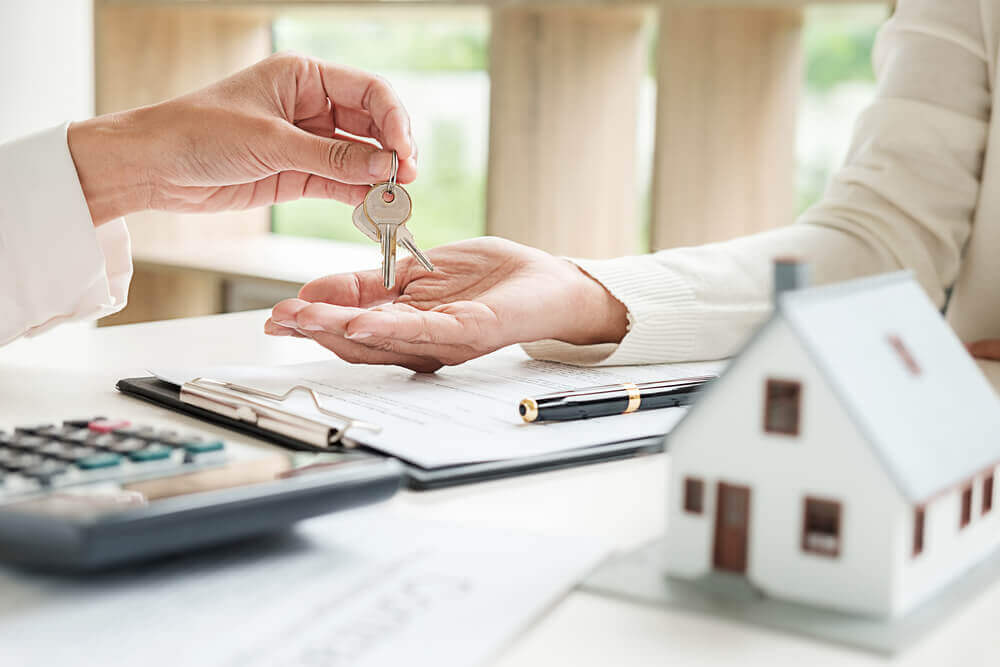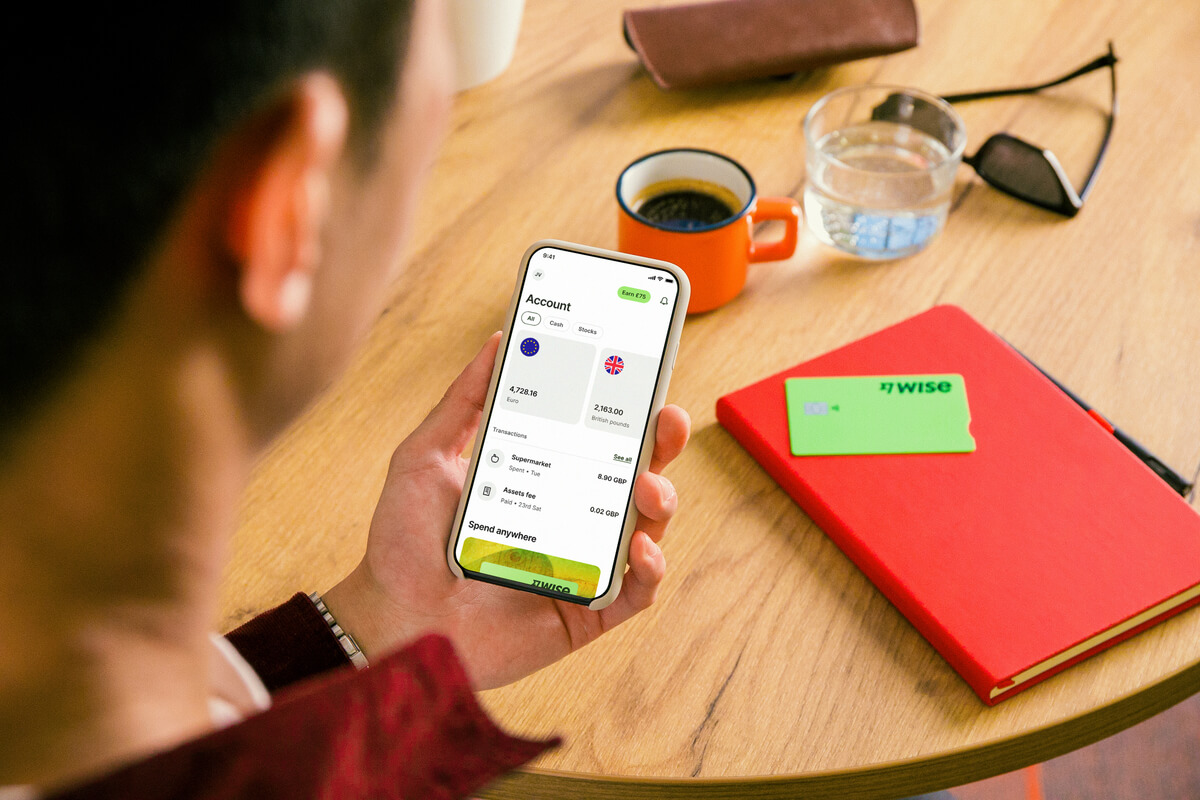Can Singaporeans buy property in Thailand - All you need to know
Buying property in Thailand as a Singaporean? Learn more about how to buy, where to buy, restrictions and requirements.

Disclaimer: The information in this article is for reference purposes only.
Wise does not offer to buy or sell stocks, and all information on this page should not be considered financial advice.
All investment decisions should be made after thorough research and consultation with a qualified financial advisor. Remember that investments, even in low-risk funds, are never guaranteed and your capital is at risk
Singapore has strong cultural ties with China - but what about if you wanted to move there? Can Singaporeans buy property in China - and if so, how? This guide on how to buy property in China as a foreigner covers some of the ins and outs of buying a place there, and the specific rules and restrictions you’ll need to know about as a foreigner.
To help you settle into China and your new home, we’ll also touch on Wise for a safe, fast and flexible way to hold, send, send and convert money in dozens of currencies with low fees and great exchange rates.
| Table of contents |
|---|
So - can foreigners buy property in China? The answer to this may depend a lot on your personal circumstances and where exactly in China you’re thinking about.
There are some pretty strict requirements to buy a property in China - including how long you’ve lived there and what you’re planning on doing with the property once you own it. These rules can also vary from one area to the next, making the process even more complicated.
Generally, to buy a property in China as a foreigner you’ll need to have lived in China already for at least 12 months, and plan to live in the apartment yourself once the purchase is completed. You can’t own land in China - making pretty much all the options available to you apartments or condos1.
Because buying a property in China is not going to work in the same way as buying a place here in Singapore, you’ll definitely need to get professional local advice to help you navigate the process. Hire a property lawyer in China who is familiar with working with Singaporeans and foreign customers, to give yourself the best chance of a hassle free ride. Let’s look at some of the things you’re going to need to think about.
Buying a property in China as a foreigner is risky - and can be extremely difficult - if you don’t get the right local support in place. You’ll need to find a local property lawyer wherever in China you plan to buy, as some rules and requirements can be regional. Finding someone who has experience working with foreign and expat clients can also be a bonus, as they’ll know the types of challenges that may arise.
Here’s a quick outline on the process to buy a property in China - we’ll cover some of the limitations you need to know about next:
Buying a place in China is not the same as buying a home in Singapore. For one, you can’t own land in China - all land is owned by the government. By buying a place you’re agreeing to lease the land from the government - usually for a fixed period of 70 years. Theoretically, this means the government could take back the land if they need it for redevelopment.
Then there are further rules relating to buying in China as a foreigner. Residency requirements are in place throughout China which mean you must already have lived in the country for a certain amount of time. This is usually 12 months but does have local variations. You will also have to commit to live in the property - you can't rent it out or use it as an investment.
The rules which apply when buying property in China as well as the documents and processes you’ll need to understand can vary depending on location. Get good local advice wherever you’re planning to buy, to cut down on hassle.
It’s possible to take a home loan in China but you might find you need a very large down payment compared to the average here. You’ll also usually need to meet other requirements such as providing proof of income and legal residency. Shop around - or use a local broker - to find out what’s available based on your personal situation.
| ✈️ Travelling to China before making your property purchase? Check out our handy guide on what you need to know before going there |
|---|
You’ll need to make sure you’re meeting all the eligibility requirements for buying a home on the Chinese side - but there are rules to think about where as well, including the Minimum Occupancy Conditions (MOC) on your HDB2.
Your MOC may be 5 years or even up to 20 years, more depending on the specific unit. You must live in the property for this time, and can’t count any time when you may be out of the country towards this total occupancy requirement. During your MOC you can’t buy another private property at home or anywhere else. Do the maths on your HDB’s MOC before you even consider looking for a new place in China to avoid stress down the line.
As a Singaporean you can currently enter China for up to 30 days with no visa. However, to buy a house in China you’ll need to have a visa to legally live in China.
You must have lived there already for 12 months to buy a place, and you’ll need to continue to live in the new property, rather than letting it out as an investment. However, owning a home in China does not guarantee you a Chinese visa. Instead, you’ll need to apply for the right visa based on your situation, through the Chinese Embassy or their approved partner service here in Singapore3.
In short, China is not a cheap place to buy property. Cities have lots of choice, but as home ownership is very high in China, there’s lots of demand which pushes up the cost.
Large cities like Beijing and Shanghai are naturally more expensive than smaller cities. However, because the costs of housing in Singapore are also pretty staggering, you may be surprised to find that average costs per square metre here are higher than in major Chinese cities:
The other interesting factor for cost is that while Singapore's property prices don’t drop off a whole lot once you’re outside of the very heart of the city, the costs in places like Beijing and Shanghai are significantly lower if you’re happy to live in a less central location.
As you can only buy property in China if you plan to live in it, the chances are that your choice of location will be dictated by work, study, or whatever else brings you to China in the first place. However, if you’re looking for a slightly cheaper option, check out less central apartments to see what the options are in your budget.

If you manage your money between CNY and SGD, you may find you can get cheaper, easier and faster currency conversion and transfers, with Wise.
Wise accounts can hold and exchange 40+ currencies including CNY - and you’ll also be able to order a Wise card to spend and make ATM withdrawals conveniently when you’re in China. Whenever you need to convert from SGD to CNY - or any other currency for that matter - you'll get the mid-market exchange rate and conversion fees from just 0.33%.
Send money from Singapore to China - or, if you're eligible, from China to Singapore, depending on your needs. Transfers can be fast, and they’ll always use the great exchange rates Wise is famous for, with low, transparent fees.
Pricing/fees: Please see Terms of Use for your region or visit Wise Fees & Pricing for the most up to date pricing and fee information
Singaporeans can buy a property in China - but there are strict rules and restrictions which mean you can’t buy to invest or as a holiday home. You’ll need to have lived full time in China for 12 months or more and plan to stay there.
Buying property in China will mean finding a local property lawyer and advisor who can help you navigate these processes and find a good deal - you may pay fees for this service, but it could save you time, worry and hassle in the long run.
Sources:
*Please see terms of use and product availability for your region or visit Wise fees and pricing for the most up to date pricing and fee information.
This publication is provided for general information purposes and does not constitute legal, tax or other professional advice from Wise Payments Limited or its subsidiaries and its affiliates, and it is not intended as a substitute for obtaining advice from a financial advisor or any other professional.
We make no representations, warranties or guarantees, whether expressed or implied, that the content in the publication is accurate, complete or up to date.

Buying property in Thailand as a Singaporean? Learn more about how to buy, where to buy, restrictions and requirements.

Want to transfer money from YouTrip to your bank account? Find out how to withdraw money directly from your YouTrip balance.

Learn more about the GXS Debit Card including its requirements, eligibility, fees and more.

Looking for the best USD accounts in Singapore? Read more here about what USD accounts can you open in Singapore

Whether you have a business and receive money from abroad or you make personal money transfers, we covered 6 best PayPal alternatives in Singapore

Wondering how to get a proof of address in Singapore? Read more here about acceptable proof of address documents.